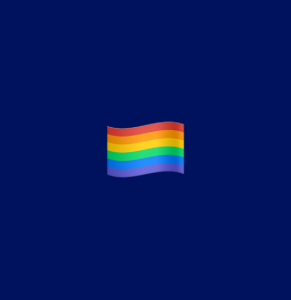Historical & Current Events dictionary
National Coming Out Day
[ nash-uh-nl kuhm-ing out dey ]
What is National Coming Out Day?
National Coming Out Day is a day dedicated to support and celebration of (and awareness of the issues that surround) coming out—the act of publicly revealing one’s sexuality or gender identity to others for the first time.
This specifically pertains to individuals who fall under the umbrella of identities commonly referred with the catchall term LGBTQ+ (and other variations of the abbreviation).
Some people use National Coming Out Day as an occasion to come out, and the day is often promoted as a time to support those who have or have decided to come out or who are considering it.
⚡When is National Coming Out Day?
National Coming Out Day is observed on October 11 every year.
Where does National Coming Out Day come from?

National Coming Out Day was started in 1988 by activists Richard Eichberg and Jean O’Leary. The date of October 11 was chosen to commemorate the anniversary of the second major National March on Washington for Lesbian and Gay Rights in 1987, which is considered a pivotal event in the LGBTQ+ rights movement.
The verb phrase come out can be used (and is often interpreted as) a short form of come out of the closet. The association of coming out with the idea of coming out of hiding is rooted in the history of persecution and marginalization of people with non-heteronormative identities—identities they often keep hidden to protect themselves from such mistreatment.
However, another sense of come out, meaning “to make a formal debut in society,” has been used since at least the late 1700s. In the 1900s, this sense started to be applied in the context of participation in drag events modeled on the debutante balls that also used come out in this sense.
National Coming Out Day is often viewed as a time to celebrate individuals’ embrace of their true identities and their bravery in doing so, despite the persecution, rejection, and other challenges that people who come out can face.
This often involves the acknowledgement that coming out can be a time of joy but also vulnerability or a combination of these and other emotions—and that it is more of an ongoing process than a one-time act.
Examples of National Coming Out Day
Who uses National Coming Out Day?
Did you know … ?
- The month of October was chosen for the observance known as LGBTQ History Month due to National Coming Out Day occurring on October 11.
What are other words used in discussion of National Coming Out Day?
- come out
- LGBTQ
- LGBTQ History Month
- Pride Month
- lesbian
- gay
- bisexual
- transgender
- queer
- nonbinary
- genderqueer
For other terms, see our Gender and Sexuality Dictionary.
Note
This is not meant to be a formal definition of National Coming Out Day like most terms we define on Dictionary.com, but is rather an informal word summary that hopefully touches upon the key aspects of the meaning and usage of National Coming Out Day that will help our users expand their word mastery.